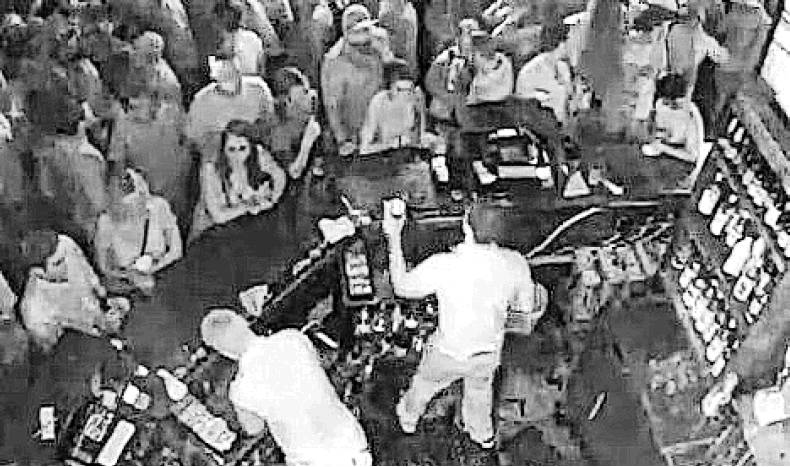TABC agent avoids charges
Official accused of perjury cleared of wrongdoing in sting operation
By Eric Dexheimer AUSTIN BUREAU
A Texas Alcoholic Beverage Commission agent whose sworn report and court testimony describing a bar sting operation was contradicted by security camera footage will not face criminal charges, the Brazos County district attorney said.
As agent Jonathan Jergins had described it in documents and under oath, the undercover sting operation he’d arranged and observed at Rebel Draft House during Texas A&M University parent’s weekend in September 2016 was straightforward: The bartender illegally sold a draft beer to a teenage girl who was working with the agent.
Yet bartender Allen Frick’s version of the transaction had been different. He insisted he checked the girl’s ID and quickly noted she was only 17. Texas law permits minor children to drink alcohol at a bar if it is given to them and observed by a parent, however, so Frick said he’d then asked the girl if the man standing behind her, Jergins, was her father. When she indicated yes, Frick said he slid the beer toward Jergins, making sure it was the agent who picked it up off the bar and handed it to the teen.
Under questioning at the trial last November, Jergins insisted he would never do that, noting that it would in fact be illegal because he is not her parent. But footage of the incident captured by the bar’s security camera showed the bartender’s recollection of events to be the correct one, and Frick was found not guilty.
Frick’s attorney, Craig Greening, said he immediately asked the district attorney’s office to consider indicting Jergins for perjury. Four months later, after a story about the case appeared in the Houston Chronicle, prosecutors opened an investigation.
Brazos County District Attorney Jarvis Parsons said the case was presented to a grand jury over the past four months. On Wednesday, he announced the panel had declined to indict Jergins for aggravated perjury. “The finding by the grand jury means they did not believe there was sufficient evidence to establish probable cause of the legal elements required for this offense,” he said in a statement, adding the charge would have meant that Jergins not only made afalse statement during an official proceeding, but also that he knew it was false.
Chris Porter, a spokesman for the alcoholic beverage agency, said it, too, had cleared Jergins of deliberate wrongdoing, concluding his incorrect testimony was a memory error rather than a purposeful attempt to mislead. He said the case nevertheless had inspired the agency to change its minor sting policies by requiring agents to write their observations and reports much sooner after their operations. Agents also will receive additional training in how to better prepare for and give court testimony, he said.
Greening, who noted the bartender ended up losing his job because of the agent’s false testimony, said the decisions perplexed him. “I don’t know what perjury is if this wasn’t perjury,” he said. “I guess if you said you didn’t punch someone in the face and the video shows you did, that’s not perjury, either.”
He added that, while it’s true that Jergins’s report was dated five days after the incident, the time lag appeared to play no role in his recollection of events. Greening pointed out Jergins relayed his incorrect version of events immediately afterward to his supervisor, who issued the bar a citation for serving alcohol to a minor.
Greening said he was preparing afederal lawsuit against the alcoholic beverage agency for violating Frick’s civil rights. eric.dexheimer@chron.com twitter.com/dexinvestigates
